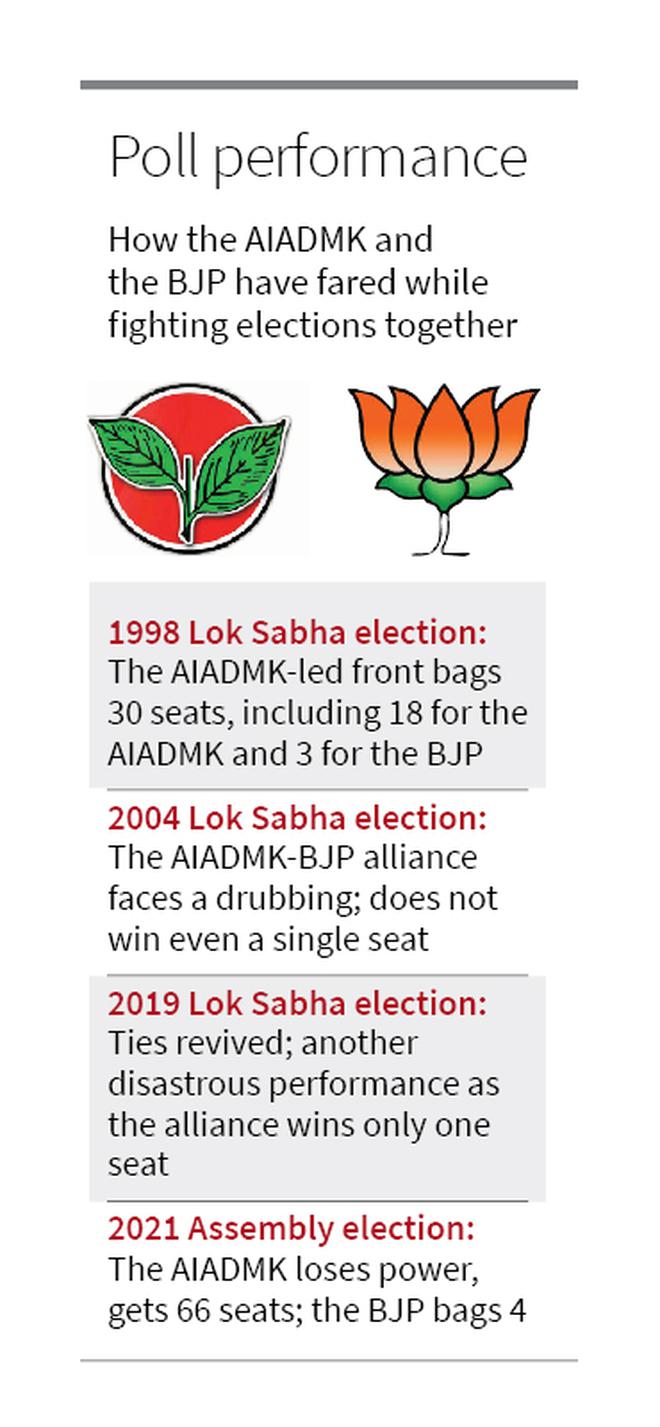The AIADMK, which formally announced the termination of its ties with the BJP on Monday, is banking on a host of factors that, it believes, would turn beneficial to it at the time of the Lok Sabha election, scheduled for April-May 2024.
Several leaders contend that a strong “anti-incumbency” factor is prevailing in Tamil Nadu against both the BJP-led government at the Centre and the DMK government in the State. Almost nine-and-a-half years of the BJP’s rule at the Centre and two-and-a-half years of the DMK government in the State have contributed to this, the AIADMK leaders believe. “Had we decided to go to the people along with the BJP, the entire lot of anti-BJP votes would have gone fully to the DMK and its partners. Now, we are confident of cornering all the anti-DMK votes. Now, the only task before us is to ensure that we bag all the pro-AIADMK votes,” explains a leader of the party from the southern region. A veteran from the northern districts is confident that at least a section of religious minorities would now support his party.
A couple of leaders of the party, hailing from the Cauvery and western belts, claim the AIADMK is expecting “desertions” from its arch-rival, the DMK. “Now, smaller parties that are with the DMK have a choice to make. Their bargaining power will go up,” they say, hoping that in the event of a migration, the strength of the AIADMK would increase.

All the leaders assert that none of the district secretaries or speakers during the meeting on Monday struck a discordant view. “All of them spoke in one voice against the BJP,” they claim.
The leaders dismiss the likelihood of the outcome of the 2014 Lok Sabha election getting repeated in reverse. In 2014, when the AIADMK contested the poll alone and the DMK faced the electorate without the Congress or any other national party, the former bagged 37 seats and the latter nil.
However, a seasoned functionary of the party says that having snapped its relationship with the BJP, the AIADMK has to stitch a “mega alliance”, as indicated by party general secretary Edappadi K. Palaniswami in Namakkal in November last year. Most of the smaller parties that are now part of the AIADMK-led alliance (or had severed ties earlier), are expected to go along with the BJP, as “they would prefer the national party to the Dravidian major for their own reasons”. The DMDK, the Puthiya Tamizhagam and the New Justice Party are among them.
The leader, of course, concedes that if the DMK is able to retain its allies, the AIADMK would have a “huge challenge” to overcome, as it would be left with no party of any base.
Another functionary says one should not forget what happened in the 1990s. Former Chief Minister Jayalalithaa, in March 1993, announced the termination of the alliance with the Congress, the then ruling party at the Centre. But three years later, the AIADMK faced the Lok Sabha and the Assembly polls together with the national party. However, the alliance was routed.







